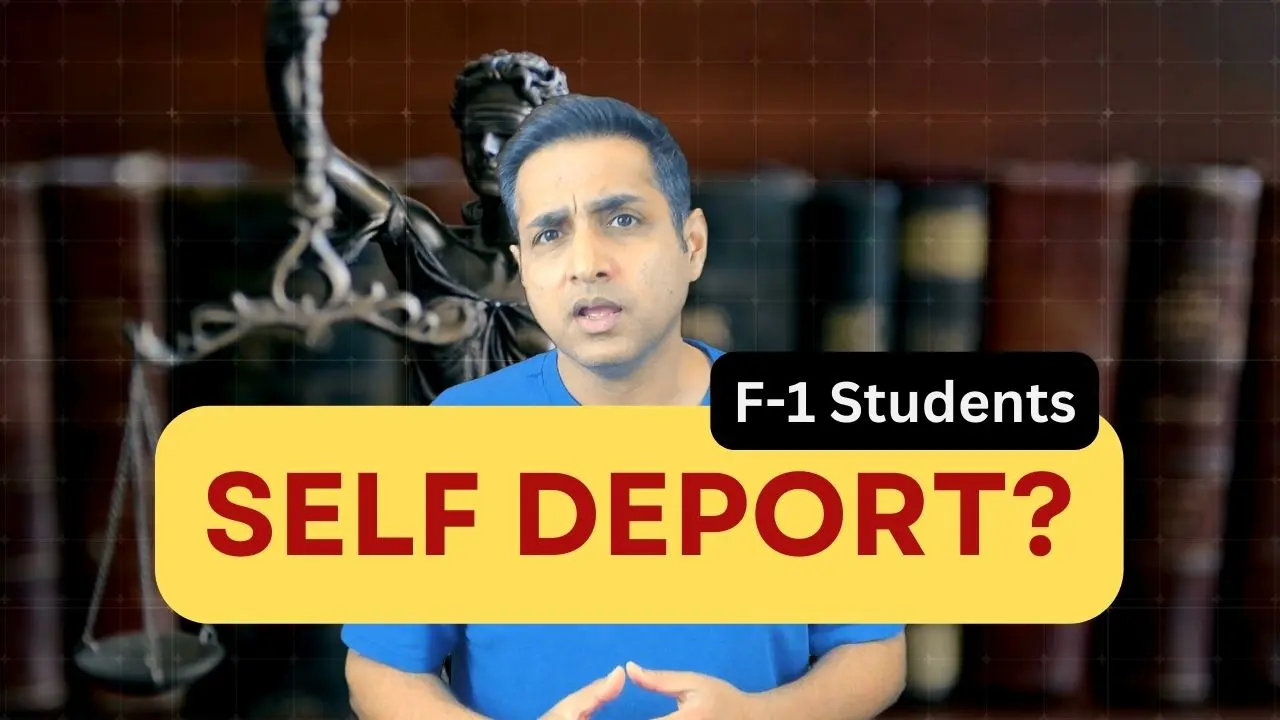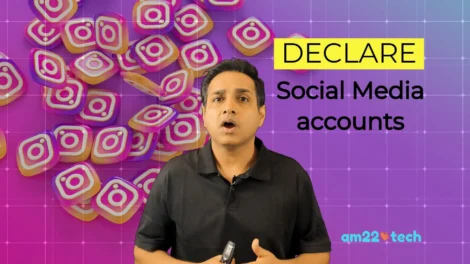|
Listen to this article
|
The news of F1 visa cancellations is real.
To add salt to injury, their SEVIS (Student and Exchange Visitor Information System) terminations are also done behind the scenes.
Foreign students in the United States are facing deportation simply based on their social media, driving tickets and other minor legal offences, as reported by many Forbes and multiple attorneys.
Attorneys have also faced this kind of situation for the first time as they think government is interpreting the law narrowly and taking unprecedented actions on students.
We have collected the primary options available for students whose F-1 or M-1 visa has been cancelled.
Only Visa Cancelled
If only your visa stamp in passport has been cancelled and your SEVIS is intact and active, then you are safe.
Visa in passport is only required to enter the USA and not physically stay. So, if you are physically in the US, you can keep staying and attending your school/college.
Both Visa AND SEVIS Terminated
This is a serious issue and needs immediate attention as per prominent immigration attorneys.
Option 1: Leave USA and Re-Entry
This is the easiest option and is commonly called ‘Self-deport’ using the government’s official self deportation reporting app.
To return to the USA, you will then need to obtain a new I-20, pay the SEVIS fee and get a new F-1 visa stamp from US embassy.
If the consulate approves your visa, you will be able to return to the USA.
But, make no mistake, the chances of approval are near zero given that the same visa was cancelled while you were in the USA.
Option 2: Lawsuit
You can choose to stay in the US and fight it out in courts. Several known attorneys have argued in the favor of pushing back and going the litigation route.
This will involve paying fee to the litigation attorney with no guarantee that the case will be won.
But, you have good chances if the reason for termination is a simple driving ticket or something similar.
Attorneys believe that odds of winning are in student’s favor.
- Due Process not followed by government: The lack of notice or information regarding terminations should create strong procedural due process arguments that could be compelling to federal judges.
- Arbitrary Action: The pattern of terminations based on mere allegations or even after acquittals suggests arbitrary government action that courts may find troubling.
- Lack of Specific Foreign Policy Justification: The government’s failure to provide specific information about alleged “foreign policy concerns” weakens their position in litigation.
- University’s Class Action lawsuit: Given that a First Amendment lawsuit has already been filed by university labor unions, affected students should consider aligning their legal challenges with this existing framework.
- First Amendment Considerations: For students whose terminations may be connected to political expression or campus activism, there are emerging legal arguments about the protection of free speech rights for non-citizens that could strengthen their cases.
Ofcourse, there are substantial legal costs involved and may be upwards of $3000.
You can still be deported while your case is going on unless the judge explicitly blocks your removal from USA.
Sources:
- Attorney Cyrus Mehta Blog
- Murthy Law
- AFT Education Healthcare Public Services
- CNN USA
- Forbes
- Times Of India




